Discover Complex Systems with Patrick McKenzie (patio11)
Complex Systems with Patrick McKenzie (patio11)

Complex Systems with Patrick McKenzie (patio11)
Author: Patrick McKenzie
Subscribed: 169Played: 8,443Subscribe
Share
© Kalzumeus Software, LLC
Description
We live in a world where our civilization and daily lives depend upon institutions, infrastructure, and technological substrates that are _complicated_ but not _unknowable_. Join Patrick McKenzie (patio11) as he discusses how decisions, technology, culture, and incentives shape our finance, technology, government, and more, with the people who built (and build) those Complex Systems.
80 Episodes
Reverse
Patrick McKenzie (patio11) reads an essay about "industrial-scale" fraud and why it should be treated as a professional business process rather than a series of isolated accidents. He explains how fraudsters leverage specialized supply chains—shared CPAs, incorporation agents, and "least attentive" banks—to loot public funds. Patrick argues that the government’s "pay-and-chase" model is fundamentally broken and suggests that simple "proof of work" functions, like a 30-second cell phone video of a workspace, could provide the visceral signal that paperwork lacks, and examines the state’s lack of "object permanence" regarding serial fraudsters and how scaled data provides the defense-side advantage needed to catch modern frauds.–Full transcript available here: www.complexsystemspodcast.com/fraud-as-infrastructure/–Presenting Sponsor: Mercury Complex Systems is presented by Mercury—radically better banking for founders. Mercury offers the best wire experience anywhere: fast, reliable, and free for domestic U.S. wires, so you can stay focused on growing your business. Apply online in minutes at mercury.com.Mercury is a fintech company, not an FDIC-insured bank. Banking services provided through Choice Financial Group and Column N.A., Members FDIC.–Links:Bits about Money: https://www.bitsaboutmoney.com/archive/fraud-investigation/ Dan Davies on Complex Systems: https://open.spotify.com/episode/5QKxzgumJXSQuaWCmYAoM9 Jetson Leder-Luis on Complex Systems podcast: https://open.spotify.com/episode/3NiC7x9edoxJXkNW9vRfAT Stripe’s Emily Sands on Complex Systems: https://open.spotify.com/episode/64Dyh6Gbg1lg4qUFwId0hc –Timestamps:(00:00) Intro(05:23) In which we briefly return to Minnesota(09:26) Common signals, methods, and epiphenomena of fraud(09:30) Fraudsters are playing an iterated game(11:29) The fraud supply chain is detectable(14:27) Investigators should expect to find ethnically clustered fraud(20:11) Sponsor: Mercury(21:47) High growth rate opportunities attract frauds(26:04) Fraudsters find the weakest links in the financial system(32:35) Frauds openly suborn identities(35:57) Asymmetry in attacker and defender burdens of proof(40:13) Fraudsters under-paperwork their epiphenomena(44:22) Machine learning can adaptively identify fraud(48:14) Frauds have a lifecycle(50:34) Should we care about fraud investigation, anyway
Patrick McKenzie (patio11) reads an essay about the business of check cashing, a misunderstood industry. He explains why cashing a check is actually a "new credit extension" where the bank bets on both the writer and the payee, and why profit-maximizing institutions often decline to bank individuals who represent even a "material risk" of a single bounced check. From the manual "rituals" of endorsement to the way fintechs like Ingo Money and Cash App use persistent identity to narrow the risk envelope, Patrick examines the technical and social reasons why some people pay to access their own wages, others don’t, and whether we can do anything about that.–Full transcript available here: www.complexsystemspodcast.com/check-cashing/–Presenting Sponsor: Mercury Complex Systems is presented by Mercury—radically better banking for founders. Mercury offers the best wire experience anywhere: fast, reliable, and free for domestic U.S. wires, so you can stay focused on growing your business. Apply online in minutes at mercury.com.Mercury is a fintech company, not an FDIC-insured bank. Banking services provided through Choice Financial Group and Column N.A., Members FDIC.–Links:Bits about Money: www.bitsaboutmoney.com/archive/the-business-of-check-cashing/ –Timestamps:(0:00) Introduction(2:15) Check cashing(2:57) An oversimplified explanation of check presentment(5:48) Depositing a check requires an extension of credit(10:47) How cashing a check works if you're not banked(12:16) A brief aside about endorsement(14:39) Many people hate check cashing and everything about it(17:06) The internal logic behind that pricing grid(19:59) Sponsor: Mercury(21:36) The internal logic behind that pricing grid (continued)(23:10) Persistent identities as a KYC possibility(25:12) A brief discussion about class distinctions in America(30:45) Check cashing on phones(34:28) Outro
Patrick McKenzie (patio11) walks through a coding session with Claude Code to demonstrate what the fuss is about. The business problem: recovering failed subscription payments that required coordinating APIs across Stripe, Ghost, and email providers, and the surprising experience of watching Claude read documentation, resolve dependency conflicts, and make sensible security choices. The episode offers a pedantic level of detail on why the sharpest technologists use words like “fundamentally transformed” to describe the impact of LLMs on coding.–Full annotated transcript available here: www.complexsystemspodcast.com/claude-code/–Sponsor: FramerBuilding and maintaining marketing websites shouldn’t slow down your engineers. Framer gives design and marketing teams an all-in-one platform to ship landing pages, microsites, or full site redesigns instantly—without engineering bottlenecks. Get 30% off Framer Pro at framer.com/complexsystems.–Links:Odd Lots episode with Noah Brier: https://open.spotify.com/episode/2fd3hvYmplEnQzxYZaxPg3?si=ylFxFe3HQ4uivH29uqC_rABits about Money: https://www.bitsaboutmoney.com/ –Timestamps:(00:00) Intro(02:21) All engineering work happens in a business context(03:47) Payment failures briefly taxonomized(08:25) Now follows a conversation with Claude Code(20:37) Sponsor: Framer(21:53) Conversation with Claude Code (continued)(39:07) My final thoughts on this(41:15) Wrap
Patrick McKenzie (patio11) is joined by Ruxandra Teslo to discuss why drug development keeps getting more expensive despite revolutionary new treatment modalities from GLP-1 agonists to gene therapies. They discuss Eroom’s Law (Moore’s Law in reverse) and Ruxandra's Common Technical Document Project, which aims to build the "Stack Overflow of clinical development" by making regulatory submissions publicly accessible. This will fill a present hole in the education of researchers, lower barriers for small biotechs, and accelerate drug discovery.–Full transcript available here: https://www.complexsystemspodcast.com/ruxandra-teslo/ –Sponsor: FramerBuilding and maintaining marketing websites shouldn’t slow down your engineers. Framer gives design and marketing teams an all-in-one platform to ship landing pages, microsites, or full site redesigns instantly—without engineering bottlenecks. Get 30% off Framer Pro at framer.com/complexsystems.–Links:Eroom's Law (original paper): https://www.nature.com/articles/nrd3681Ruxandra’s writing: https://www.writingruxandrabio.com/ Ross Rheingans-Yoo on drug development: https://open.spotify.com/episode/4GiO0KYqxJNCIdltCyhN6m?si=2znQniZ3RXKuX8keNcwWtw Ben Reinhardt on science and development: https://open.spotify.com/episode/0GHegWgLSubYxvATmbWhQu?si=pVCJVITYTqaq65BiST2d0Q–Timestamps:(00:00) Intro(00:56) Challenges in biopharma productivity(03:12) Understanding clinical development(04:59) The role of basic science in drug development(07:39) Clinical development process explained(09:25) Issues in clinical trials and development(19:33) The role of information in clinical trials(20:30) Sponsor: Framer(21:42) The role of information in clinical trials (continued)(32:55) Proposed solutions for clinical development(40:31) Consultant opinions and regulatory documents(41:28) Streamlining the regulatory process(43:06) Understanding FDA interactions(45:35) Building a public library of regulatory documents(48:18) Encouraging novel approaches in biotech(50:06) Addressing risk aversion in the industry(51:52) Analyzing FDA consistency and reviewer heterogeneity(01:02:15) The importance of courage in professional growth(01:06:39) Supporting young professionals and catalyzing change(01:16:14) Wrap
Patrick McKenzie (patio11) sits down with Intercom co-founder Des Traynor to examine customer support through the lens of Conway's Law, Goodhart's Law, and several decades of accumulated organizational scar tissue. They discuss how AI agents are democratizing white-glove service, why modern LLMs have retrained user expectations around “chatbots” very quickly, and the surprisingly liberating effect of talking to something that will never judge you for missing a loan payment.–Full transcript available here: www.complexsystemspodcast.com/des-traynor/–Sponsor: MongoDB Tired of database limitations and architectures that break when you scale? MongoDB is the database built for developers, by developers: ACID compliant, Enterprise-ready, and fluent in AI. Start building faster at mongodb.com/build–Timestamps:(00:00) Intro(00:29) Intercom and its evolution(00:51) Challenges in customer service systems(02:54) Scaling customer support in startups(04:53) Organizational inefficiencies and customer experience(06:53) Metrics and their impact on customer support(12:40) Human capital issues in customer support(15:53) AI's role in customer support(17:01) Future of customer support roles(20:09) Sponsor: MongoDB(20:53) Future of customer support roles (continued)(26:19) AI and customer interaction(26:55) The myth of artisanal customer support(27:45) Fin Guidance: Evolution and user behavior(29:10) Fin's impact on customer support efficiency(33:30) Expanding Fin's capabilities beyond support(42:50) AI in government and other sectors(49:20) The future of AI connectivity and integration
Patrick McKenzie (@patio11) reads his latest Bits about Money essay explaining why he “loves Regulation E more than any rational person does.” He explains how Reg E created a privately-administered legal system processing over 100 million complaints annually—dwarfing the formal U.S. court system—and why banks are now trying to avoid these obligations for Zelle's nine figure fraud problem.–Full transcript available here: www.complexsystemspodcast.com/the-magic-spell-reg-e/– Sponsors: MongoDB & FramerTired of database limitations and architectures that break when you scale? MongoDB is the database built for developers, by developers: ACID compliant, Enterprise-ready, and fluent in AI. Start building faster at mongodb.com/build Building and maintaining marketing websites shouldn’t slow down your engineers. Framer gives design and marketing teams an all-in-one platform to ship landing pages, microsites, or full site redesigns instantly—without engineering bottlenecks. Get 30% off Framer Pro at framer.com/complexsystems.–Links:Bits about Money, One Regulation E, Two Very Different RegimesFull version of "Doesn't Matter, That's Reg E": https://suno.com/song/173bbd67-92f7-4868-930f-efeca4b373c0–Timestamps:(00:00) Introduction(02:46) These newfangled computers might steal our money(12:45) The contractual liability waterfall in card payments(20:35) Sponsors: MongoDB and Framer(22:23) The contractual liability waterfall in card payments (continued)(23:47) Enter Zelle(25:46) Zelle is an enormous fraud target(32:23) Banks may attempt to extend the Zelle precedent(35:02) Reg E encompasses almost every technology which exists and many which don't yet
Our annual year-in-review episode covers some recurring themes from 2025 and some behind-the-curtains discussion of running a podcast. Patrick McKenzie (patio11) sits down with producer Sammy Cottrell to discuss the most popular episodes of the year, the impact of AI coding tools, the challenges of video podcasting, Sammy's role as a "fixer" finding guests, and much more.–Full transcript available here: www.complexsystemspodcast.com/2025-in-review-with-sammy-cottrell/–Sponsor:Framer is a design and publishing platform that collapses the toolchain between wireframes and production-ready websites. Design, iterate, and publish in one workspace. Start free at framer.com/design with code COMPLEXSYSTEMS for a free month of Framer Pro.–Timestamps:(00:00) Introduction(01:38) Launching video podcasts this year(02:52) AI ethics and risk discussions(04:29) Supporting LessWrong and LightHaven(07:24) Adventures in AI-assisted hobbies(12:38) Most popular episodes of the year(19:45) Sponsor: Framer(20:52) Popular episodes (continued)(29:06) Setting up a podcast studio at Lighthaven(32:31) Internal company podcasts(38:03) Year in review and investigative journalism(43:02) Creating Isekai(49:13) Wrap
For this week's holiday-inspired Complex Systems, Patrick reads his essay from Bits about Money on the gift card paradox: a legitimate payments rail, yet also a primary vector for fraud that leaves victims without recourse.–Full transcript available here: www.complexsystemspodcast.com/gift-cards-and-the-fraud-supply-chain/–Sponsors: Givewell & Framer Support proven charities that deliver measurable results and learn how to maximize your charitable impact with GiveWell. Go to givewell.org, pick “Podcast” and enter Complex Systems at checkout.Framer is a design and publishing platform that collapses the toolchain between wireframes and production-ready websites. Design, iterate, and publish in one workspace. Start free at framer.com/design with code COMPLEXSYSTEMS for a free month of Framer Pro.–Links:Bits about Money, Gift cards accountability sink https://www.bitsaboutmoney.com/archive/gift-card-accountability-sink/Global China Puise, Moving Bricks https://globalchinapulse.net/moving-bricks-money-laundering-practices-in-the-online-scam-industry/ –Timestamps:(00:00) Intro(04:02) Most businesses do not run their own gift card programs(06:40) Sponsors: Givewell and Framer(09:00) Most businesses do not run their own gift card programs (part 2)(10:27) Gift cards are not regulated like other electronic payments instruments(12:07) Why do we choose this difference in regulation?
In this episode, Patrick McKenzie (patio11) walks through how perpetual futures work, from funding rates to liquidations to the surprise of automatic deleveraging. Perps are the dominant trading mechanism in crypto (6-8X larger than spot volume) and exist primarily to let exchanges and market makers run casinos more capital-efficiently. He explains why this intellectually interesting innovation probably won't escape crypto, despite what crypto enthusiasts might expect.–Full transcript available here: www.complexsystemspodcast.com/understanding-perpetual-futures/–Sponsor: Framer is a design and publishing platform that collapses the toolchain between wireframes and production-ready websites. Design, iterate, and publish in one workspace. Start free at framer.com/design with code COMPLEXSYSTEMS for a free month of Framer Pro.–Links:Bits about Money, Perpetual futures, explained www.bitsaboutmoney.com/archive/perpetual-futures-explained/ –Timestamps:(00:00) Intro(02:36) Beginning with the problem(06:49) Perps predate crypto but found a home there(08:19) Multiple settlements a day(10:30) Convergence in prices via the basis trade(13:44) Sponsor: Framer(15:11) Leverage and liquidations(18:46) We have altered the terms of your unregulated futures investment contract(21:50) An aside about liquidations(25:14) Will crypto successfully "export" perps
In this episode, Patrick McKenzie (patio11) is joined by Ben Reinhardt, founder of Speculative Technologies, to examine how science gets funded in the United States and why the current system leaves much to be desired. They dissect the outdated taxonomy of basic, applied, and development research, categories encoded into law that fail to capture how actual breakthrough science happens.–Full transcript available here: www.complexsystemspodcast.com/the-economics-of-discovery-with-ben-reinhardt/–Sponsors: GiveWell & FramerSupport proven charities that deliver measurable results and learn how to maximize your charitable impact with GiveWell. First-time donors can go to givewell.org, pick “Podcast” and enter COMPLEXSYSTEMS at checkout to get $100 matched.Framer is a design and publishing platform that collapses the toolchain between wireframes and production-ready websites. Design, iterate, and publish in one workspace. Start free at framer.com/design with code COMPLEXSYSTEMS for a free month of Framer Pro.– Links:Speculative Technologies: https://spec.tech Ben Reinhardt's website: https://benjaminreinhardt.com Bits About Money: https://www.bitsaboutmoney.com/ –Timestamps:(00:00) Intro(00:26) Understanding focused research organizations (FROs)(01:52) The evolution of science funding(03:59) Taxonomy of research: basic, applied, and development(06:14) Challenges in science funding and research(08:12) The role of process knowledge in research(18:52) The bureaucracy of tech transfer offices(20:00) Sponsors: GiveWell & Framer(22:33) Critique of tech transfer offices(25:20) The burden of bureaucracy on researchers(44:34) Emerging solutions and optimism in research(46:58) Wrap
Why do billions of dollars of stock trade hands based on napkin math and vibes? Billy Gallagher, CEO of Prospect and former Rippling employee, joins Patrick McKenzie (patio11) to walk through the information asymmetry that costs less-sophisticated employees massive amounts of money. From understanding when to early exercise options to navigating 83B elections and tender offers, they discuss the critical decisions that have a shot clock ticking the day you sign your offer letter.–Full transcript available here: www.complexsystemspodcast.com/understanding-equity-at-tech-companies/–Sponsor: Framer is a design and publishing platform that collapses the toolchain between wireframes and production-ready websites. Design, iterate, and publish in one workspace. Start free at framer.com/design with code COMPLEXSYSTEMS for a free month of Framer Pro.–Links:Prospect: www.joinprospect.com/–Timestamps:(00:00) Intro(00:44) Billy's professional journey(01:07) Equity management challenges(02:29) The importance of equity compensation(04:53) Equity grant structures in startups(06:09) Understanding vesting terms(07:09) The value of equity over time(08:48) The myth of options as lottery tickets(11:23) Career tailwinds from startup experience(14:25) Breaking into the tech industry(15:16) The role of equity in compensation(17:49) Employee equity plans and dilution(19:59) Sponsor: Framer(21:06) Stock options vs. RSUs(21:55) The decision to exercise options(27:11) Tax implications of exercising options(33:03) The role of HR in equity management(36:14) Bootleg spreadsheets and vibes-based investing(38:09) Navigating tax complexities in different scenarios(41:31) The importance of extended exercise windows(44:18) Challenges with tax residency and remote work(49:43) The role of accountants in managing equity(53:41) Understanding the 83(b) election and QSBS(01:01:03) Tender offers and secondary sales(01:08:38) Strategies for exercising and selling options(01:12:28) Navigating financial decisions in startups(01:16:59) Wrap
Patrick McKenzie (patio11) reads his essay on title insurance, a service designed to never be performed with a "laughably low" 5% loss ratio compared to 50-80% for almost all types of insurance. The typical American moves every seven to eight years, paying a $500 annual tax for basically no good or service. This is due to a quirk about how America records real estate ownership: it mostly doesn’t. Confused? Welcome to the joyous anarchy that is American real estate.–Full transcript available here: www.complexsystemspodcast.com/the-4-000-insurance-policy-designed-to-never-pay-out/–Sponsor: Framer is a design and publishing platform that collapses the toolchain between wireframes and production-ready websites. Design, iterate, and publish in one workspace. Start free at framer.com/design with code COMPLEXSYSTEMS for a free month of Framer Pro.–Links:Bits about Money, Working title (insurance) https://www.bitsaboutmoney.com/archive/working-title-insurance/–Timestamps:(00:00) Intro(01:59) What is "title," anyway?(02:48) Distributed versus centralized database design in property rights(04:50) A quick digression for privacy-minded buyers(08:21) High confidence and complete confidence are different(11:28) Title insurance and title searches(14:33) One very quirky risk transfer and a statistical artifact(19:14) How title insurance is sold(20:03) Sponsor: Framer(21:34) How title insurance is sold (cont’d)(23:36) Is there anything to be done here?(25:47) Potential innovations in title insurance
Patrick McKenzie (patio11) reads his Bits about Money essay on deposit insurance, explaining this critical financial infrastructure, with some thoughts on its performance during 2023. He covers what deposit insurance actually covers (and critically, what it doesn't), how fintech users often misunderstand their exposure to counterparty risk, and the anatomy of bank failures. This is infrastructure you rely on as much as electricity: ubiquitous, critical, hopefully invisible, and worth understanding before it matters again.–Full transcript available here: www.complexsystemspodcast.com/how-deposit-insurance-actually-works/–Sponsor: Framer is a design and publishing platform that collapses the toolchain between wireframes and production-ready websites. Design, iterate, and publish in one workspace. Start free at framer.com/design with code COMPLEXSYSTEMS for a free month of Framer Pro.–Links:Bits about Money, https://www.bitsaboutmoney.com/archive/deposit-insurance/ –Timestamps:(00:00) Intro(03:10) The covered peril(07:07) Anatomy of a bank failure(12:55) Keeping your bank hydrated(19:58) Sponsor: Framer(23:20) Orderly bank failures(28:25) The cost of insurance(30:15) The ultimate backstop(31:48) Deposit insurance as ubiquitous infrastructure
In this episode, Patrick McKenzie reads his essay about the financial infrastructure that makes buying windows painless. When a window installer can originate, underwrite, and fund a $25,000 loan in 15 minutes before leaving your house, it's because four parties—window companies, facilitating platforms, specialized banks, and capital providers—have built a system that actually works. Patrick explains how modern consumer lending learned from 2008 to create better underwriting, clearer compliance, and properly distributed risk, all in service of enabling commerce in the real economy.–Full transcript available here: www.complexsystemspodcast.com/home-improvement-lending/–Sponsor: Framer is a design and publishing platform that collapses the toolchain between wireframes and production-ready websites. Design, iterate, and publish in one workspace. Start free at framer.com/design with code COMPLEXSYSTEMS for a free month of Framer Pro.–Links:Bits about Money: https://www.bitsaboutmoney.com/archive/window-modern-loan-origination/ –Timestamps:(00:00) Intro(02:46) Why not just have banks loan money for home improvement?(06:43) Modern installment loan origination as a service(09:58) Sponsor: Framer(11:09) Modern installment loan origination as a service (part 2)(15:17) What's the actual product offered?(19:03) How does this pie get divvied up?(24:12) Is this unsecured lending?(26:12) Should we be happy this Rube Goldberg machine exists?
Patrick McKenzie (@patio11) shares his remarks to the Bank of England on critical vulnerabilities in financial infrastructure. Drawing from the July 2024 CrowdStrike outage which brought down teller systems at major US banks, Patrick discusses how regulatory guidance inadvertently created dangerous software monocultures. He also examines the stablecoin market, its impressive growth, and the elephant tethered to the room. He also delivers a message from Silicon Valley to other centers of power on the urgent necessity of waking up regarding AI, which almost the entire world currently far underrates.–Full transcript available here: www.complexsystemspodcast.com/talking-to-the-bank-of-england/–Sponsor: Framer is a design and publishing platform that collapses the toolchain between wireframes and production-ready websites. Design, iterate, and publish in one workspace. Start free at framer.com/design with code COMPLEXSYSTEMS for a free month of Framer Pro.–Links:The Bank of England: https://www.bankofengland.co.uk/ Bits about Money, Why the CrowdStrike bug hit banks hard: https://www.bitsaboutmoney.com/archive/crowdstrike-bug-hit-banks-hard/ Scaling Laws for Neural Language Models" by Kaplan et al: https://arxiv.org/pdf/2001.08361 Stripe Annual Letter 2024: https://stripe.com/annual-updates/2024 –Timestamps:(00:00) Intro(01:48) The importance of implementation-level understanding(03:00) Single points of failure(04:25) Can a 22-year-old engineer close all the banks?(05:18) The CrowdStrike incident: A case study(08:34) The culture of "shut up and shuffle"(09:54) Blameless postmortems(12:25) What actually happened during CrowdStrike(18:01) Five whys: Root cause analysis(19:03) How software monocultures are created(22:54) Understanding endpoint monitoring software(25:25) Distributed systems and the nature of CrowdStrike(31:22) The economics of software monocultures(33:29) Why wasn't there defense in depth?(37:05) Why was recovery so difficult?(40:32) The domino effect across financial institutions(43:36) What went right: Electronic systems remained up(45:10) This was a near miss(49:29) Potential policy responses(54:03) Switching gears: Stablecoins(01:01:37) The elephant in the room: Tether(01:15:32) Who loses if Tether implodes?(01:16:59) AI and the future of trading(01:26:47) AI risks in the trading space(01:30:41) Closing
Patrick McKenzie (patio11) is joined again by Ricki Heicklen to discuss Metagame 2025, a conference where 250 attendees were divided into Purple and Orange teams competing for territories across campus. Patrick built a complete roguelike RPG in 25 days using LLMs, discovering that providing minimal world-building context transformed generic fantasy outputs into emotionally resonant storytelling. They discuss the power and responsibility of game designers, how games create pedagogical experiences that traditional teaching cannot, and what happens when the line between player identity and character identity starts to blur.–Full transcript available here: www.complexsystemspodcast.com/narrative-mastery-character-bleed-in-games-with-ricki-heicklen/–Sponsor: Framer is a design and publishing platform that collapses the toolchain between wireframes and production-ready websites. Design, iterate, and publish in one workspace. Start free at framer.com/design with code COMPLEXSYSTEMS for a free month of Framer Pro.–Links:Metagame: https://www.metagame.games/–Timestamps:(00:00) Intro(00:25) Using games to teach trading(00:57) Game design conference insights(01:12) Ricki’s personal journey into game design(02:41) Exploring different game types(03:35) Challenges in game design(04:44) Metagame conference overview(08:23) Escape room design experience(11:25) Building a rogue-like game(15:35) Metagame mechanics and challenges(18:25) Sponsor: Framer(19:37) Metagame mechanics and challenges (part 2)(31:10) Event management and lessons learned(44:00) Game mechanics and player roles(45:09) Complex encounters and Plague Town(48:44) Moral choices and player decisions(50:59) Game design and narrative impact(55:36) Character bleed and real-world influence(01:02:00) Game design challenges and player agency(01:24:16) Community and player interaction(01:30:04) Wrap
Patrick McKenzie (patio11) is joined by Oliver Habryka, who runs Lightcone Infrastructure—the organization behind both the LessWrong forum and the Lighthaven conference venue in Berkeley. They explore how LessWrong became one of the most intellectually consequential forums on the internet, the surprising challenges of running a hotel with fractal geometry, and why Berkeley's building regulations include an explicit permission to plug in a lamp. The conversation ranges from fire codes that inadvertently shape traffic deaths, to nonprofit fundraising strategies borrowed from church capital campaigns, to why coordination is scarcer than money in philanthropy.–Full transcript available here: www.complexsystemspodcast.com/bits-and-bricks-oliver-habryka/–Sponsor: Framer is a design and publishing platform that collapses the toolchain between wireframes and production-ready websites. Design, iterate, and publish in one workspace. Start free at framer.com/design with code COMPLEXSYSTEMS for a free month of Framer Pro.–Links:Lightcone Infrastructure: https://www.lightconeinfrastructure.com/ Lighthaven: https://www.lighthaven.space/LessWrong: https://www.lesswrong.com/ –Timestamps:(00:00) Intro(01:08) The origins and evolution of LessWrong(03:54) Challenges of running an online forum(05:57) Reviving LessWrong(14:51) The unique structure of Lighthaven(17:35) The complexities of conference venues(19:14) Sponsor: Framer(20:14) The realities of conference planning(25:32) Challenges of maintaining Lighthaven(29:54) Navigating permits and regulations(37:02) Impact of fire code regulations on traffic fatalities(39:06) Economic analysis of safety regulations(41:39) Housing policy and construction in Berkeley(43:30) Fundraising challenges in the nonprofit sector(46:44) Effective altruism and fundraising dynamics(54:20) Lessons from religious fundraising practices(01:05:36) Reflections on fundraising(01:13:26) Wrap
Patrick McKenzie is joined by Clara Collier, editor and publisher of Asterisk Magazine, to discuss how we create institutions that bend towards truth. Clara explains why she launched a quarterly print magazine in the Internet age. She traces how 19th century German universities invented the modern infrastructure for rewarding knowledge production and training researchers at scale, and where our public science communication falls short of that heritage. The conversation examines why institutional trust has declined, particularly around science communication and public health, and whether we can rebuild trust in knowledge-producing institutions.–Full transcript available here: www.complexsystemspodcast.com/building-institutions-that-bend-towards-truth-with-clara-collier-of-asterisk-magazine/–Sponsor: Framer is a design and publishing platform that collapses the toolchain between wireframes and production-ready websites. Design, iterate, and publish in one workspace. Start free at framer.com/design with code COMPLEXSYSTEMS for a free month of Framer Pro.–Links:Asterisk Magazine: https://asteriskmag.com–Timestamps:(00:00) Intro(00:44) The birth of Asterisk Magazine(02:58) Challenges of print media(04:41) The media landscape and Twitter's influence(06:03) The art of long-form writing(13:08) Editing and copy editing in magazines(19:33) Sponsor: Framer(20:45) Editing and copy editing in magazines (part 2)(25:24) AI in writing and editing(30:33) The origins of research universities(34:19) The flawed promotion system in academia(34:40) The rise of research institutions(35:32) The birth of modern research culture in Germany(36:27) The global influence of German universities(40:13) The American university system vs. German system(41:50) The role of public and private partnerships in science(42:47) Challenges in science communication(56:22) The impact of COVID-19 on public trust in science(01:06:42) Historical perspectives on medical trust(01:11:15) Wrap
Patrick McKenzie is joined by Chris Best, CEO of Substack, to discuss how the platform created new economic infrastructure for independent media. They explore Substack's evolution from a simple newsletter tool to a full media network, the revenue guarantee program that attracted prominent writers, and the company's principled stance on press freedom during the "cancel culture" years. Chris explains how subscription-based business models create better incentive alignment than attention-based advertising, and discusses new features like AI-powered video production and Substack Defender, their legal protection program for writers facing lawsuits.–Full transcript available here: www.complexsystemspodcast.com/how-blogging-went-legit-with-substack-ceo-chris-best/–Sponsor: Framer is a design and publishing platform that collapses the toolchain between wireframes and production-ready websites. Design, iterate, and publish in one workspace. Start free at framer.com/design with code COMPLEXSYSTEMS for a free month of Framer Pro.–Links:Chris Best’s Substack: https://cb.substack.com/–Timestamps:(00:00) Intro(00:53) The evolution of online publishing(01:20) Substack's business model(02:05) Challenges and opportunities in media(03:47) The role of engagement in media(06:03) The birth of Substack(08:58) Making paid newsletters accessible(10:54) Revenue guarantees and early success(13:05) Substack's impact on journalism(17:59) Freedom of the press and Substack's stance(19:24) Sponsor: Framer(20:40) Twitter's influence on journalism(24:09) Substack's role in modern media(26:04) The impact of cancel culture on journalism(26:53) The evolution of blogging and discourse(30:53) Substack's expansion into podcasts and video(32:42) AI and the future of media production(38:20) Substack defender(42:22) The growing network and future of Substack(46:03) Wrap
Patrick McKenzie is joined again by Kelsey Piper, who has co-founded "The Argument" to revive principled liberal discourse after witnessing how coordinated social media campaigns replaced substantive disagreement in newsrooms. Their conversation traces this institutional breakdown from media to government, examining how DOGE's spreadsheet-driven governance nearly destroyed PEPFAR, America's most successful foreign aid program that had driven infant coffin manufacturers out of business across Africa. The discussion ultimately argues that rebuilding both effective journalism and competent governance requires returning to the hard work of engaging with ground-level reality rather than managing online narratives.–Full transcript available here: www.complexsystemspodcast.com/prestige-media-new-media-with-kelsey-piper/–Sponsor: Framer is a design and publishing platform that collapses the toolchain between wireframes and production-ready websites. Design, iterate, and publish in one workspace. Start free at framer.com/design with code COMPLEXSYSTEMS for a free month of Framer Pro.–Links:The Argument https://www.theargumentmag.com/–Timestamps:(00:00) Intro(00:31) The Argument(03:19) Challenges in modern journalism(06:42) The impact of social media on discourse(13:37) The role of Substack and independent media(20:13) Sponsor: Framer(21:30) The role of Substack and independent media (part 2)(30:59) The PEPFAR program and its importance(44:01) Impact of US aid cuts on global mortality(45:25) Substitution efforts and their limitations(47:54) PEPFAR's partial continuation and challenges(51:21) Consequences of administrative decisions(54:28) Elon Musk's influence and government actions(01:00:14) Challenges in government accountability(01:15:47) Reforming administrative processes(01:24:45) The role of community input in development(01:28:28) The power of constituent voices(01:30:15) Wrap



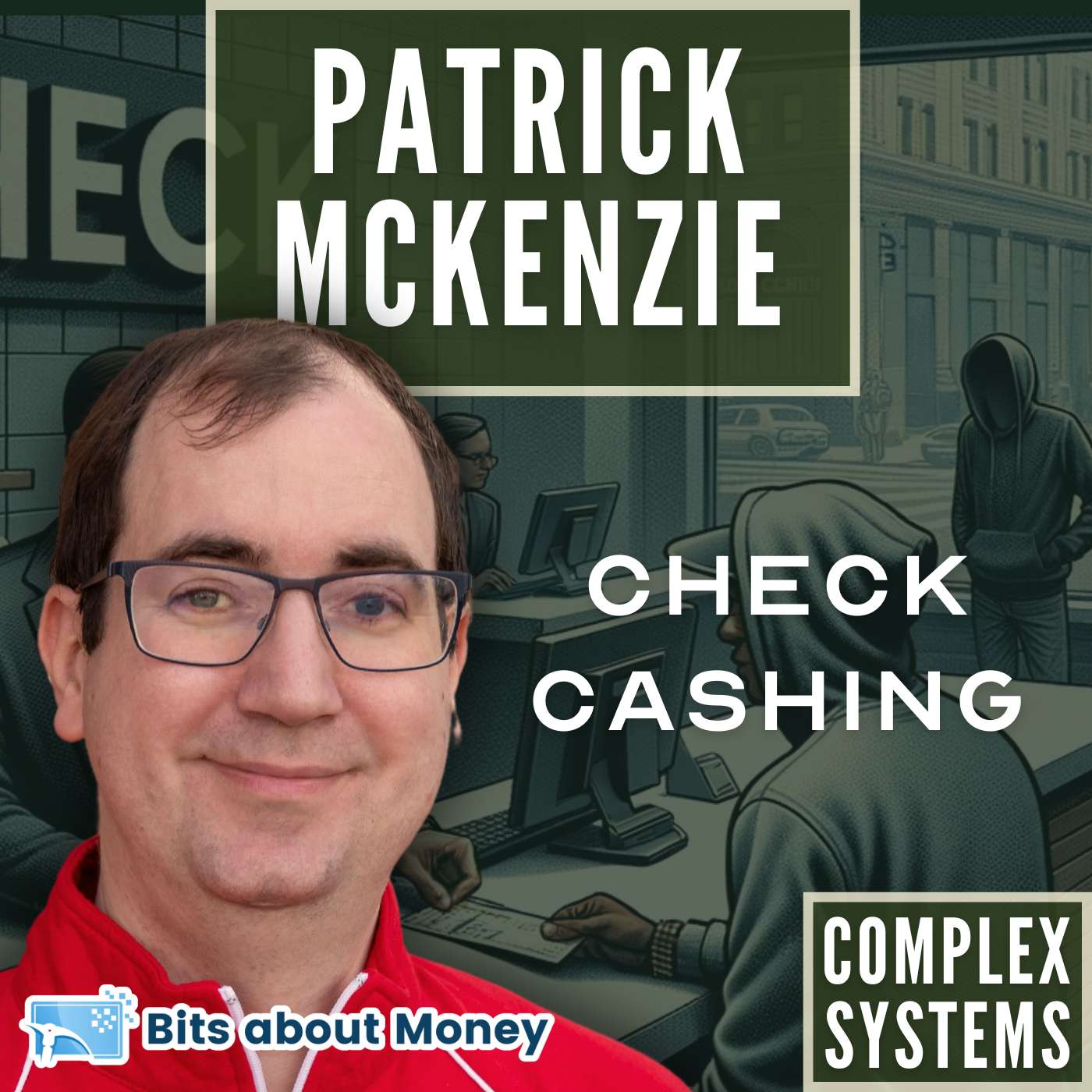
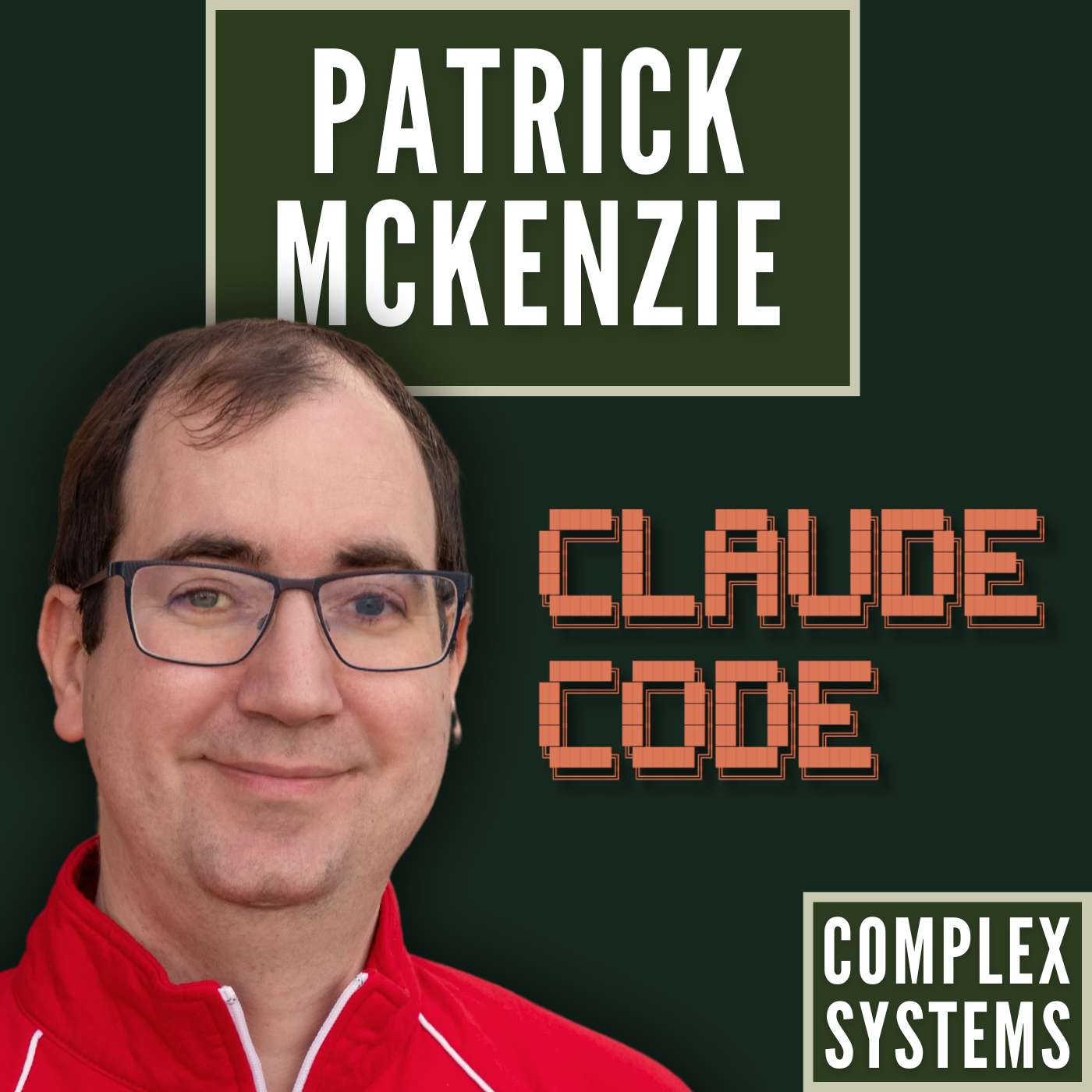
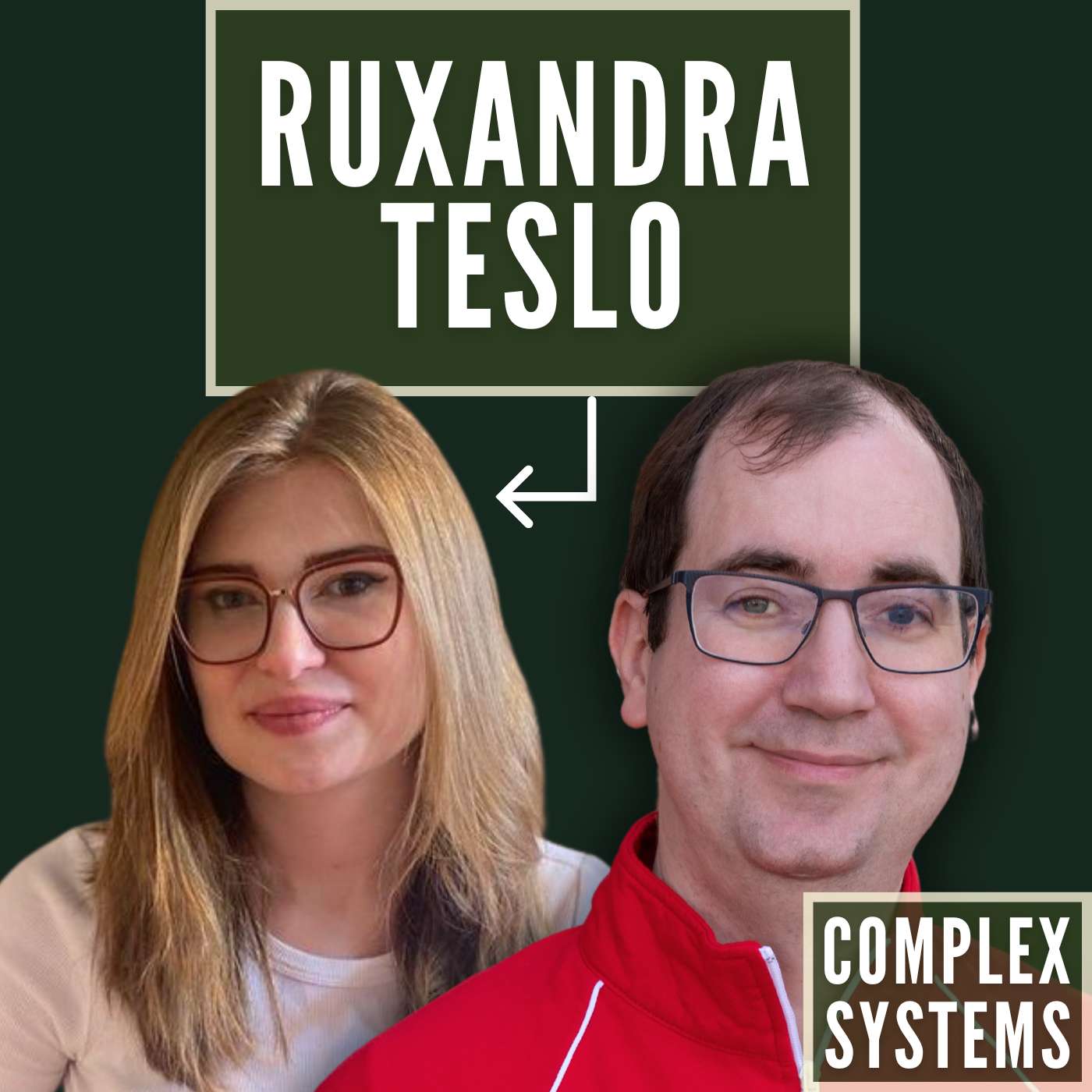
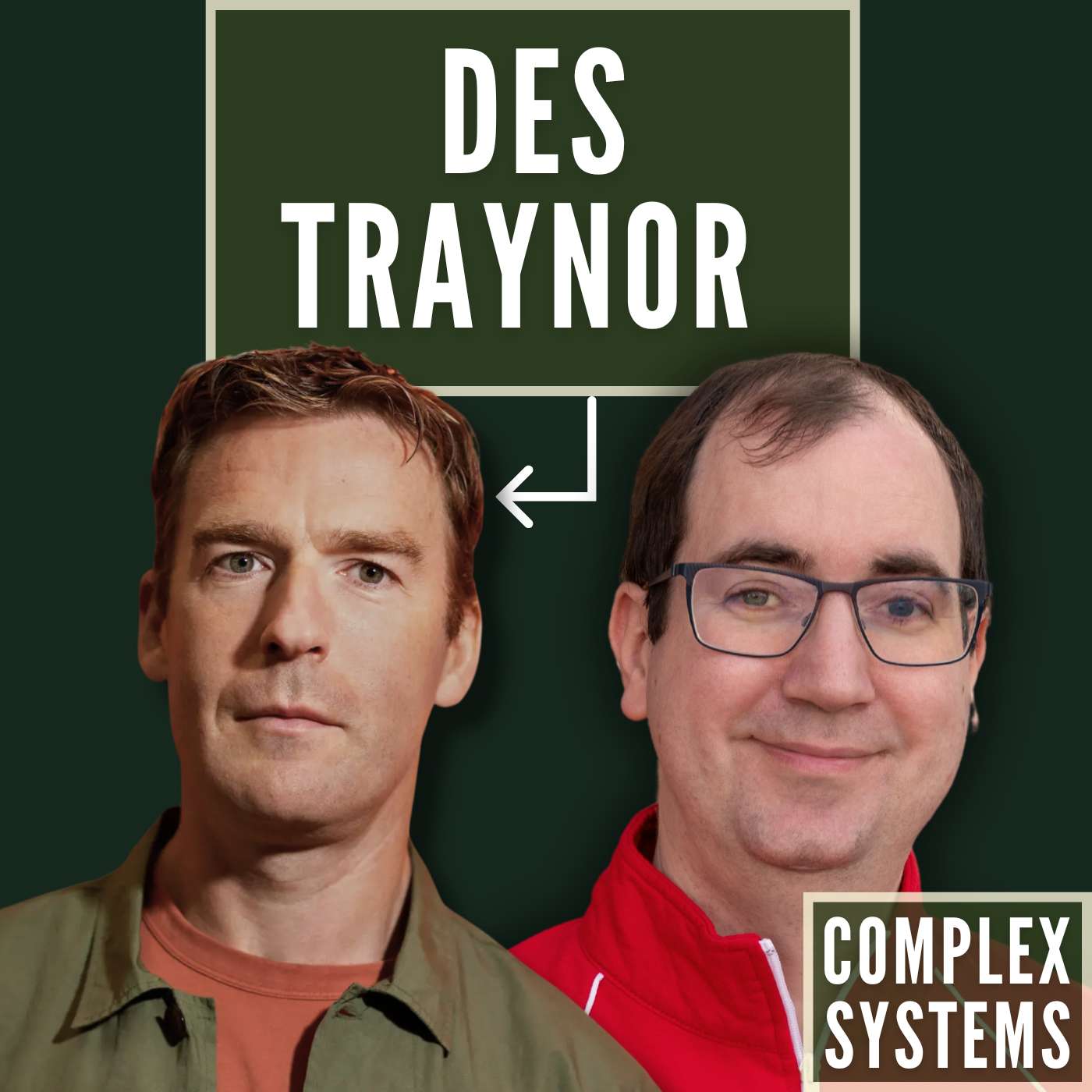
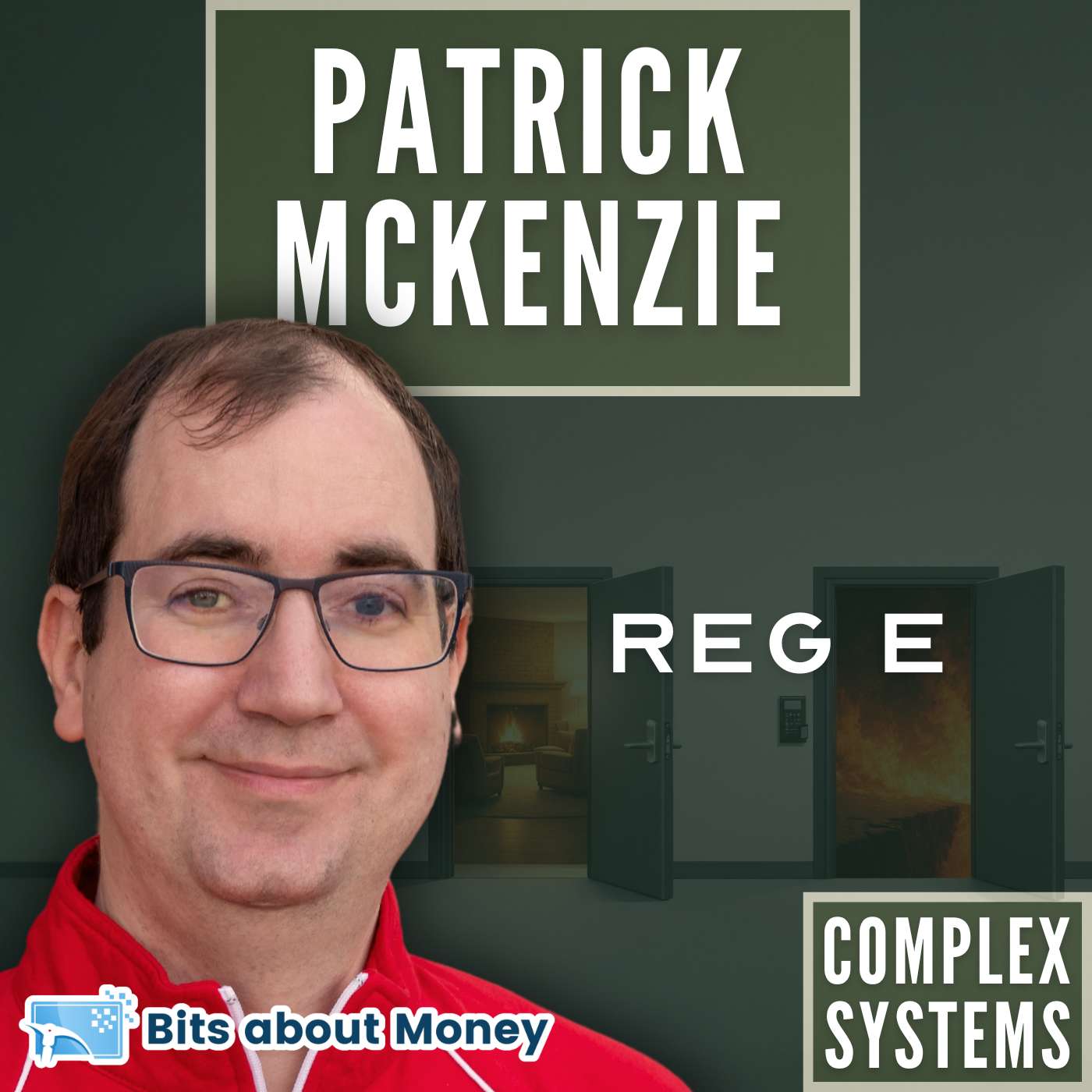
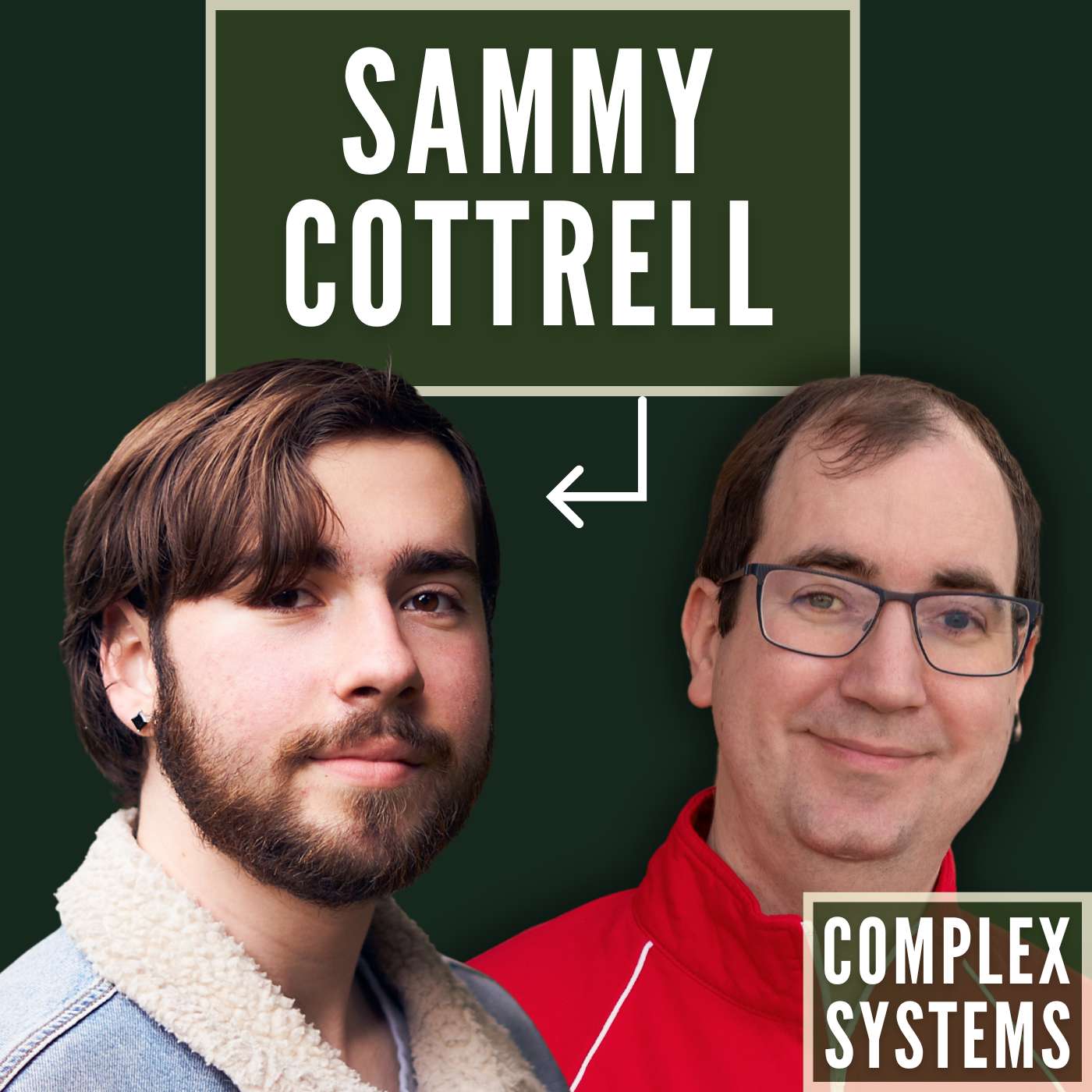

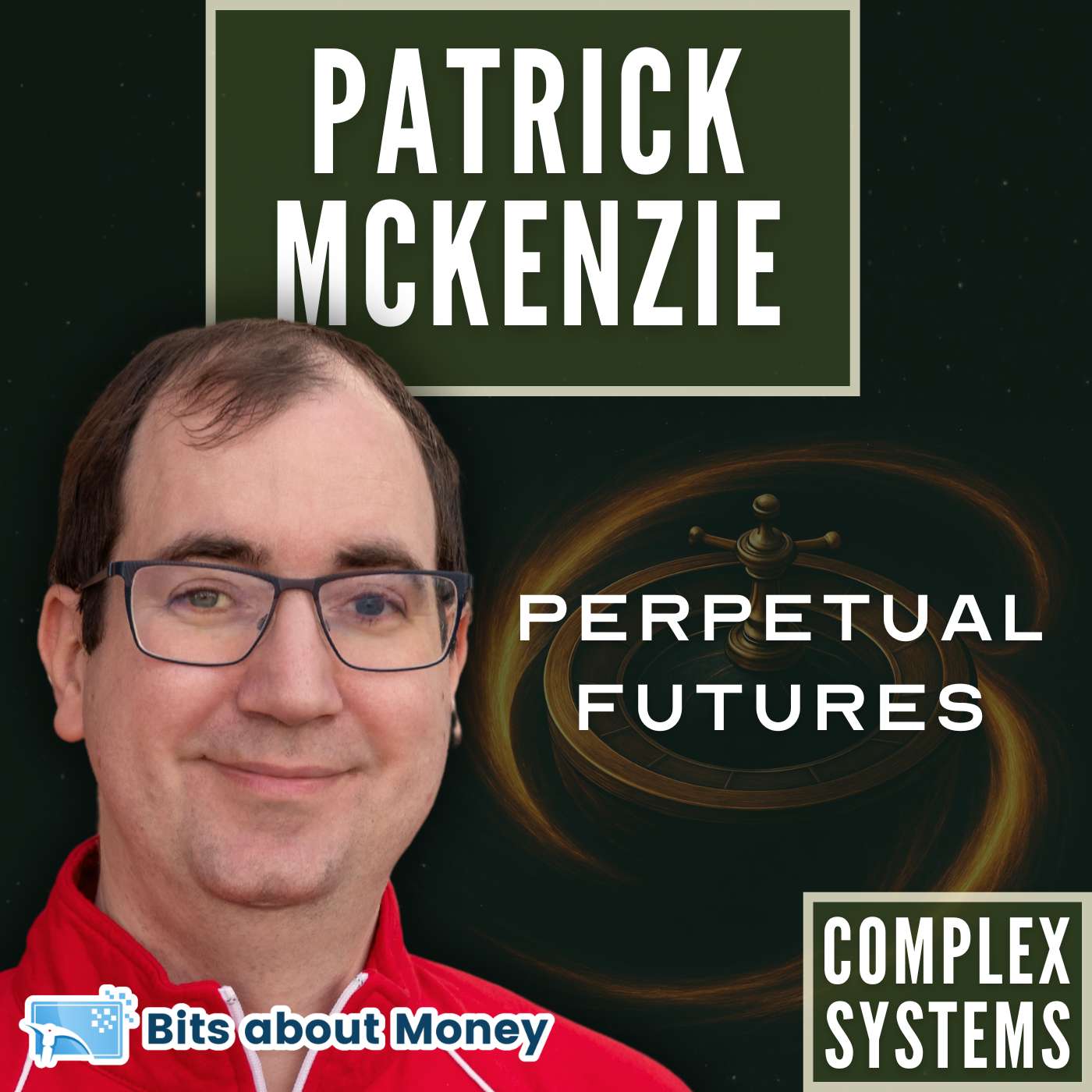














episode was great. I like the extra 30 minutes
I really like your shows. Sometimes though rather than you explain what something is i would rather you ask the person you are interviewing.
learned another about a topic I hadn't really thought about
you can see you are getting better with interviews and pacing
I don't think this episode was the best. Neither of you seemed like interviewing was your thing and the running over and keeping it in the show, to me made you seem like a jerk